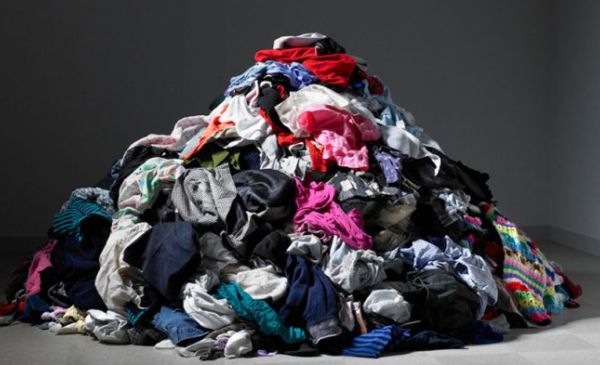
Retailer J. Crew announced a bankruptcy filing last month that will potentially close its nearly 200 stores and those of sister company Madewell. Problems for the company have been racking up for years: unsustainable debt, fit and quality issues, a misguided push toward higher income consumers (which alienated its core customer base) and extreme discounting. But J. Crew’s real problem is that the company doesn’t mean anything to anyone. It has no thematic reason for being.
The challenge of creating a successful anything is to take a product that is essentially meaningless — let’s say a T-shirt — and imbue it with meaning.
Brand identity, relevance and changing media landscape — cited in The New York Times as J. Crew’s fault lines, are all just game stakes — like style, fit, quality and selection.
As a consumer if you don’t mean anything to me, I don’t care.
Truth is, meaning is created through story and J. Crew has no storyline or narrative spine to hold everything together. No pattern of meaning, no mythology. Where do they come from? What do they stand for? No rites of passage or celebratory gatherings. Even skater, surf and street brands have a mythos that they cling to. (Yes, especially skater, surf and street brands.) The brand created no heroes worth exalting. (J. Crew stakeholders tried to insert brand-thinking by hiring legendary GAP champ Mickey Drexler, but today’s post-traditional marketing methods eluded him.)
And unlike skater, surf and street brands, J. Crew gave us no one to hate. Nothing bitter, tangy or solid heat. The enterprise remained solidly middle of the road vanilla, with click funnels attached. At the expense of establishing long-term human relationships.
J. Crew has fallen and they will not be alone. The entire fashion industry is guilty of believing that they can piece together an outfit, hire a photographer, attach a celebrity and call it a “Brand”. Consumers, meanwhile, are calling it bullshit.
Try this at home: Remove the labels from a couple pairs of pants and tops and try to re-attach the correct label to the goods. (Makes for a fun game while quarantined in place. Run to your closet. Seven items makes it fun. Twelve will make it hysterical.)
Build Your Brand Narrative
Brand identity, relevance and changing media landscape, are all part of the same whack-a-mole narrative. Confused identity and diluted sales fit together like polo shirts and khaki pants.
The solution? Design your strategic brand narrative, then disperse that narrative across the omnichannel spectrum of social, digital and traditional media. Look at Rhiannon, look at Gwyneth, look at baby Kardashian. They all create media ecosystems so seamless, graceful and seemingly at their leisure that they make the process look commonplace.
Born back in the personality age of Ralph Lauren, Calvin Klein, Liz Claiborne and Donna Karan, J. Crew hopped on the bandwagon with the persona sans the person. There was no J. Crew, male or female. J. Crew showed the promise of being as authentic as, say, Warby Parker (another imaginary figure). But they never showed up to make the declaration.
Today’s equivalent might be the runaway cult of ampersand brands trying to follow the likes of Dolce & Gabbana, Zadig & Voltaire, or Rag & Bone. There’s Mark & Graham, Scotch & Soda, Black & White, Kopper & Zink, Craft & Commerce, Côte & Ciel, Cutler & Gross, Dimissianos & Miller and more. How many of these enterprises are already Dead & Gone? (Kit & Ace has gone. H&M just posted that sales are down 57%, since March 2020.)
Beware Of Your Success
Marketers can become victims of their own (or another’s) success. If something works, they do it over and over again — beyond the point of effective differentiation, increased share or anything that matters. This becomes marketing by rote. The post-COVID-19 world will not afford anyone that luxury.
Reaction times will now be measured in days, hours and moments. Anyone who can’t adjust in real time will become perishable. Note the surfeit of weary “unprecedented times” messaging going on right now. Over.
Empathy and compassion will rule. If the heart and soul of your enterprise is dispassionately attribution-driven, you are prone to blunder.
There will be pent-up demand for the things that we haven’t been able to do during Quarantine: noisy restaurants, food shopping, spontaneous friendships, hugs, skin moisturizer.
Paradoxically, there will also be pent-up self-loathing. We have learned that we have too many pillows, candlesticks, jangles. Not enough hobbies, me-time, poetry, down time. The wonder of old things — rather than the sparkle of new things.
The words “shopping” and “therapy” will never be attached again. Spontaneous purchasing will be reconsidered. Pent-up regret and self-abuse becomes compressed into the pragmatic notion — What if I had one bracelet that I really really loved, rather than a tangled drawer-ful?
(Next comes the existential follow-up, WHAT IS the one thing that I really love?) Gap, Saks, Neiman Marcus, H&M are already feeling this backlash.
A recent brand intimacy study shows that 38% of Apple owners can’t live without their iPhones. 32% of Amazon customers can’t live without getting a box shipped to their doorstep. 26% can’t live without Disney. We got along without J. Crew pre-Covid19, we’ll get along without them after.
Contributed to Branding Strategy Insider by: Patrick Hanlon, Author of Primal Branding
The Blake Project Can Help: Get actionable guidance from the experts on Building Brand and Business Meaning
Branding Strategy Insider is a service of The Blake Project: A strategic brand consultancy specializing in Brand Research, Brand Strategy, Brand Growth and Brand Education
FREE Publications And Resources For Marketers
No comments:
Post a Comment